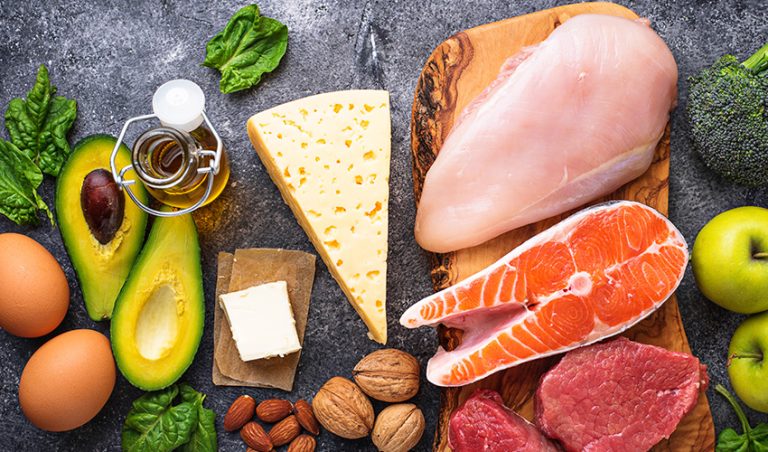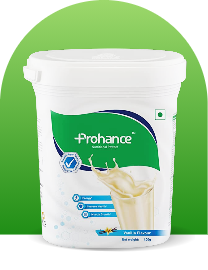
Protein is one of the most vital macronutrients required by the body to build muscles and repair damaged tissues. Unfortunately, the Indian diet is deficient in protein. A 2017 survey shows that 73% of Indians have a protein deficiency, while 90% are unfamiliar with everyday protein requirements
With National Protein Day approaching on February 27, why not attempt to increase the protein intake in your diet? This day is a perfect reminder to start valuing your body’s dependence on protein and also strive to intake an adequate amount of this macronutrient.
A vegetarian diet has certain limitations regarding protein intake and content. Both vegan and vegetarian diets lack certain amino acids, including lysine, tryptophan, methionine, and isoleucine.
Not just this! The choice of essential protein foods for vegetarian individuals is much more limited than for those who consume meat. For non-vegetarians, their daily protein requirement can be easily fulfilled through animal products, such as chicken, fish, and red meat, as they are high in protein.
Try the Nutrition Calculator to get detailed insight on your daily meal
Here are five solid reasons why one should consume adequate protein rich foods every day:
Therefore, meeting your daily protein requirement is important for supporting these essential bodily processes. If you are not sure how to increase protein intake, keep reading to know the best protein sources.
Proteins can be categorised into two forms – the one obtained from food sources and the other in supplement form.
As the name suggests, whole food protein has all nine essential amino acids. Plus, these proteins come from whole food sources that are usually rich in other macronutrients as well. Plant-based proteins are incomplete, with exceptions like dairy, hemp seeds, chia seeds, quinoa and tofu. For non-vegetarians, whole proteins can be easily taken from foods like pork, beef, fish and eggs.
Protein supplements contain protein in the form of a powder, capsules, or snacks bars. They have proteins derived from plant-based sources, such as milk (casein or whey protein), soy, or hemp. These supplements are usually given along with protein-rich foods (depending on how much protein is needed per day) or as a meal replacement powder or snack.
Consult Now & get personalized guidance to improve your health and wellbeing
Achieving protein targets is important, because not getting adequate protein in your daily diet can cause issues with your health. For example, tissue might breakdown, resulting in loss of muscle. But more may not always be better. Although it can help you build muscle, consuming too much may cause your body to accumulate the surplus as fat.
The Recommended Dietary Allowance (RDA) for protein is 0.8 g per kg of protein or 0.36 grams of protein per pound of body weight regardless of your age. This amounts to about 46 g/day for an average sedentary woman and 56 g/day for an average sedentary man. However, the exact protein requirements will also depend on other factors, including current fitness level, activity level, overall physical health, age, etc.
A person following a vegetarian or vegan diet can rely on the following protein sources to meet their daily protein requirement.
Tofu, edamame and tempeh are derived from soybeans. These soy-based proteins contain 12-20 grams of protein per 100 grams of serving. Some delicious recipes to resort to are roasted tofu vegetable salad, marinated baked tempeh, and chilly-garlic edamame.
Seitan is another good protein source for vegans and vegetarians alike. Also known as wheat gluten or wheat meat, this plant-based protein is a great meat substitute. Seitan contains 25 grams of protein per 100 grams. – Cook it with sauces and vegetables of choice to get your daily dose of protein.
Beans and lentils are handy protein sources for people who don’t eat meat. While most beans offer 15 grams protein per 170 grams per cooked cup, lentils contain 18 grams protein per 198 grams per cooked cup. Salads, curries and even soups prepared with beans and lentils are some of the great food options to rely on.
Nutritional yeast, a kind of deactivated yeast containing a strain of Saccharomyces cerevisiae, is a complete protein. It is commercially available in yellow granules, flakes, or powder. Sources say that 16 grams of nutritional yeast offer 8 grams of protein. Incorporate this whole protein in recipes like scrambled tofu, pasta or mashed potatoes.
Protein is an essential macronutrient that helps in a number of bodily functions, including building tissues and repair, muscle growth, and digestion. Consuming adequate protein rich foods is vital for overall well-being and good health. Below are a few tips to help you reach your daily protein requirements:
n general, most people should consume between 10% and 35% of their daily calories in protein. Activities such as biking, lifting weights, and running require extra calories, but the protein percentage remains within the same range.
As you age, especially above 40 years old, sarcopenia, or muscle mass loss, can occur and you may require additional protein. Get help to determine how to fulfil daily protein requirement and ways to boost protein intake.
Also, if you are overweight, you should reduce the amount of calories you consume. A dietitian can help you determine the amount of protein you should consume.
From strong muscles and increasing stamina to repairing damaged tissues, the importance of protein cannot be underestimated. So, make an effort to increase your daily protein intake and count on high-quality protein sources.
If you are unsure about how to increase your protein intake, you can rely on Prohance, a balanced nutritional powder for adults that combines high-quality protein and 14 key vitamins and minerals. This specially formulated health supplement offers balanced energy, meets nutritional needs hassle-free, and helps to build strong bones and muscles. So, include Prohance protein powder in your diet this National Protein Day and boost your overall health!
Disclaimer: This blog/publication/editorial/article is meant for awareness/educational purposes and does not constitute or imply an endorsement, sponsorship, or recommendation of any products. Please consult your doctor/healthcare practitioner before starting any diet, medication, or exercise.
